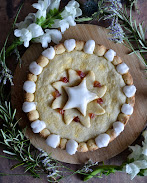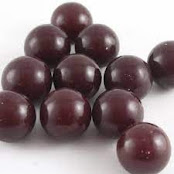Introduction
Robert
Wilson Lynd (1879 – 1949) is an Irish essayist and journalist. He writes under
the pseudonym “YY” in journals like The New Statesman and Nation. His
essays have somber humour and satirical remarks. His prose essay “Sweets”
explores children’s fondness for different flavoured chocolates and sweets.
Sweets as Exchange
The
essay begins with the depressing statistics of spending fifty million pounds
every year on chocolates and confectionery in Great Britain. The city child has
lost Wordsworthian delights of witnessing the variety of flowers and animals
whereas as an exchange he has the riches of the sweet shop.
Sweets as Expensive
Luxury
It
is hard to trace when the social history of the democratization of sweets began.
Sweets hadn’t been the universal food of children till the eighteenth century when
sugar had been an expensive thing. Lynd doubts whether poor children had ever tasted
sweets like marchpane, kissing comfits referred to in
Shakespeare’s plays.
Sweets for Cure
Until the nineteenth century, sweet-making was in the hands of druggists. It implies that
the ancestors of all present delicacies are that had medical utility, the
cough-drop. The chemist remains half a confectioner with his liquorice,
pastilles and marshmallows. What once done for
utility is now done for pleasure. The child of today sucks jujube
for pure joy which was sucked two hundred years ago as a cure.
|
Marshmallow |
 Liquorice Jujube |
|
|
|
It is highly fortunate that doctors once thought that
sweets were good for us. Sweets have made a greater contribution to the
physical happiness of mankind. The sight of the bottles in the sweet shop stirs
the imagination of the infant. Lynd in a tone of exaggeration says that the
sweets in each box would compete with their rivals to be the choice of the boy
who enters the shop with a penny whereas he experiences only agonies of
indecision among bull’s-eye, brandy balls, pear-drops and barley-sugar.
Children want to taste all the sweets in the shop. They cannot decide which
sweet to buy and which to reject.
|
bull’s-eye
|
pear-drops |
|
brandy
balls |
barley-sugar |
Greed for Sweets
All
the jars of sweets fill him with an ache of longing from throat to stomach. “Great
are the joys of greed but great are its sufferings.” Lynd says that the boy
could make his choice easier if he has a sister to share his sweets who
dislikes, for instance, coco-nut chips. Humourously, he says that if that boy is
either selfish or unselfish, he would buy coconut chips, so he need not share them. Lynd declares that such greed is to be blamed, but the pain of
sharing almond rock with many others is extremely bitter. Hence
the author remarks that the pang of desire and sharing stops children from eating
sweets with others.
Almond Rock Coco-nut Chips
Sweets not for Sharing
A boy who never offers a sweet to a friend is regarded
as one who would live to be hanged. On the other hand, a well-mean boy has
bought a packet of sweets with a benevolent intention of sharing it with others;
but when he gets home, he has discovered that the packet is finished. The
writer too found it difficult to get home with a box of nougat. The
silver wrapper of nougat tempted him to open the box and made him to taste a
piece. And he felt that the worst of nougat is that one could not stop eating
it. The writer says that if his home had not been so far from the shop, the
others would have considered him a saint for not touching nougat.
Features of Love of Sweets
1.
Declines with age
If no one under thirty were allowed to eat sweets, half of the confectionery would go out of business. Hardly a middle-aged man look into a confectioner’s window and gaze at a sweet shop as if it is a vision of Heaven. But the author knows a man who eats chocolates while he is drinking and many women who nibble sweets after dinner. However, none of them get excited like a child. Neither an adult would shout for getting a sugar mouse nor would get into raptures for seeing a chocolate Easter egg with a sugar hen. No friend would thank for passing a bagful of acid drops
|
|
|
|
|
Sugar Mouse Acid Drops |
Easter Egg with a Sugar Hen  |
|
A true sweet-eater is an almost indiscriminate
love of sweets. He loves everything called sweets from the despised acid drop
to the delicious sugar almond, whether humbug or nougatine,
butter-scotch or liquorice laces, either a peppermint
drop or aniseed balls. The child has
preferences among sweets but no hatred.
|
Sugar Almond |
Humbug |
|
|
Butter-Scotch |
Licorice Strings |
|
|
Nougatine  |
Aniseed balls Peppermint Drops |
|
Favourite Sweets of the Author
Lynd’s
preference was almond rock. He also wonders at a sweet which turns colour as
one sucks it. He enjoys its miraculous transformation by taking it out of
mouth for a while. He questions whether the confectioners stop
producing it considering the hygiene. Next, he mentions a flat
honey-flavoured sweet in which a three penny was sandwiched between the two. The
infants of the town bought shillings-worth chocolate with an unearned three
pence. This was regarded as dangerous incitement of gambling and was stopped. Lynd
says that the sweet never tasted quite
the same afterward.
Source of Pleasure
Lynd concludes his essay by saying that the adult’s tastes
for tobacco, beer, wine, and whisky are not sufficient compensation for the loss of
the appetite for sweets. Because,
·
An
adult does not long for all the brands of cigarettes in the shop.
·
He
does not consider the packet of cigarettes as a treasure.
·
He
smokes not much for pleasure but for the purpose of avoiding the discomfort of not
smoking.
·
Wine
experts may have the excitement of a child eating sweets but they have lost the
indisriminateness of enjoyment. They discriminate the good and bad wine.
On the other hand, the child lives happily in a world
in which greed and not fastidiousness are the source of pleasure. He never heard
of bad sweets and loves all sweets with the large-heartedness with which it
loves all stars and fireworks.





















Comments
Post a Comment